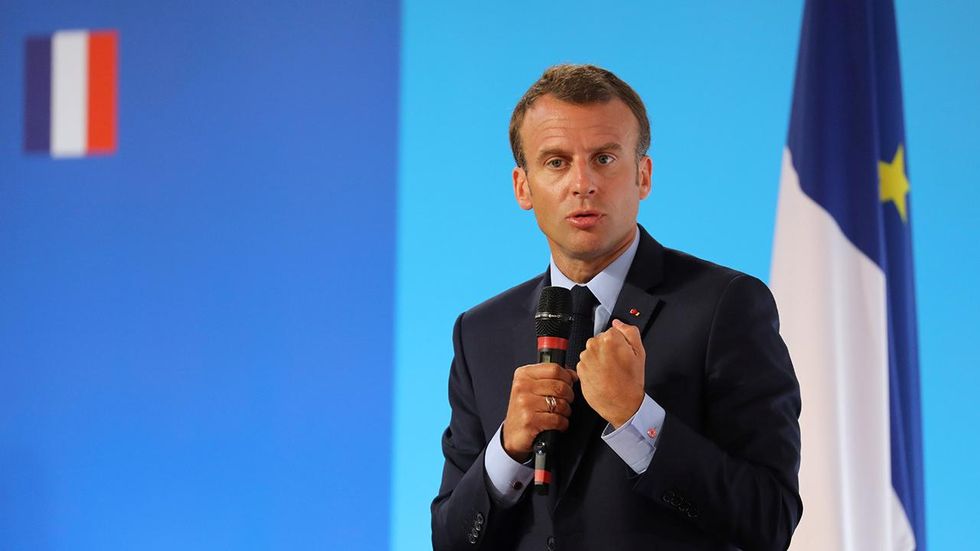
French president Emmanuel Macron supports a proposed “fake news” law that would crack down on “misinformation” during election season. Macron says he was a victim of false information while campaigning. (Ludovic Marin/Getty Images)

French government leaders and the media are sparring over a so-called fake news bill that supporters say will prevent “misinformation” during election campaigns.
But opponents are accusing the government of attempting to legalize censorship, Yahoo News reported.
Under the draft bill, political candidates or a party can seek an injunction that prevents the publication of “false information” for three months prior to a national election, the report stated.
The government wants to get the bill in place in time for next year's European parliamentary election.
French President Emmanuel Macron began his fight against misinformation after online rumors began circulating that he is gay and maintains a “secret bank account in the Bahamas.” Macron had said the rumors were lies started by Russian media and the far right in France.
Media and members of Parliament have pushed back against the plan, according to the report. Members of both the left and right have called it an attempt to squelch free speech and freedom of expression.
"The road to hell is paved with good intentions," said Constance Le Grip, an MP from the center-right Republicans Party.
Le Grip said there is a risk of information being labelled "fake news" by a judge only to have it be proven true a few days later.
The Le Figaro newspaper wrote in an editorial that "journalism and official truths have never been good bedfellows.” The best way to avert fake news is to "promote education, culture, objectivity, reflection and critical thinking,” the paper stated.
"What I don't want is that some day we have a Trump elected by a Putin in our country,” MP Stanislas Guerini of Macron's centrist party said on French radio.
European governments claim they are trying to find ways to best respond to fake information and foreign meddling in elections. They blame allegations that the Kremlin interfered in the 2016 U.S. presidential race.
In Britain, the government has a “fake news” investigative unit. Italy has established an online service for reporting false news. Additionally, the European Union is working on a "code of practice" to provide guidelines for social media companies.
"A sure way of destroying freedom, faced with the current dangers, is to do nothing," said Culture Minister Francoise Nyssen, who ran a publishing house before joining the government.
Among other things, the bill would force social media sites to show the names of sponsored content. Also, the government would be able to stop broadcasting foreign broadcasters if they are viewed as attempting to “destabilize France.” It appears that part of it is aimed at the Kremlin-backed news outlet RT, according to the report.